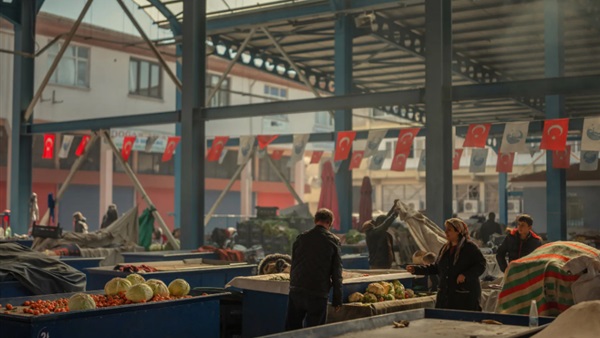Turkish Economy in Peril as Erdogan Grapples with Earthquake Devastation and Political Challenges

The deadly earthquake that has left over 40,000 people dead
in Turkey and thousands more in Syria has saddled Ankara with a significant
reconstruction bill, which will only weaken the country’s already faltering
economy. Prior to the earthquake, Turkey was already grappling with a
collapsing currency and runaway inflation, which had hit an annual rate of 85%
in October. These vulnerabilities have punched holes in the nation’s balance
sheet, tipping Turkish families and businesses into a cost-of-living crisis.
The reconstruction is expected to cost between $10 billion and $50 billion,
although the Turkish Enterprise and Business Confederation puts the total
closer to $85 billion.
Turkey’s economy had been slowing from an 11% growth rebound
in 2021 from the pandemic and it had been expected to grow by 3% this year and
next, according to the European Bank for Reconstruction and Development. The
earthquake could now reduce growth by at least a third. The Turkish lira has
lost nearly 30% of its value against the dollar in the past year, severely
damaging Turks’ purchasing power and hurting President Recep Tayyip Erdogan’s
popularity. In January, inflation cooled slightly, to an annual rate of just
under 60%, as energy prices fell.
Turkey also faces a mountain of external loan payments,
worth nearly $185 billion, that have grown harder to pay off because of a
plunge in foreign currency reserves, raising fears of a crisis. International
investors, worried about heavy debt burdens at Turkish companies, have
increasingly pulled money from the country since 2018. Mr. Erdogan’s insistence
on lowering interest rates in defiance of a broad economic consensus that
inflation should be contained by raising them has not helped matters. Although
that approach has helped stabilize the lira’s free fall, it has come at a high
price. Today, over two-thirds of households are struggling to pay for food and
rent, and more than half of workers earn wages worth less than the equivalent
of $300 a month because of the lira’s devaluation.
Mr. Erdogan, who has been criticized for his handling of
relief efforts, is doubling down on an autocratic playbook for managing the
economic and political fallout from the earthquake. Analysts say his main focus
is on the elections, and he will be seeking a rebalancing effect once
reconstruction starts. Brushing off accusations of crony ties between his
government and Turkey’s construction industry, Mr. Erdogan earlier this month
ordered the detention of dozens of building contractors and announced a fast-track
rebuilding program to start replacing thousands of destroyed homes within one
year. Whether that will be enough to resolve Turkey’s entrenched economic
problems remains to be seen.





